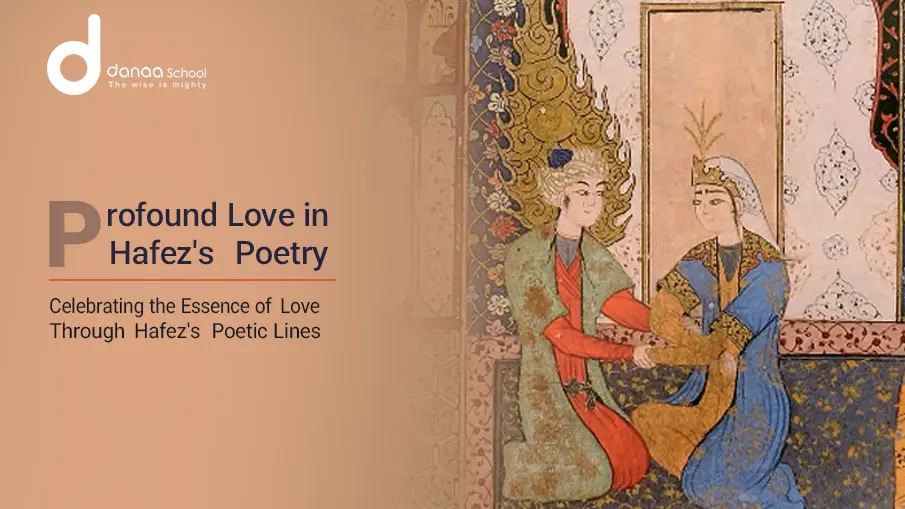Rumi vs Hafez: What Is the Difference Between Two Persian Poets?
Rumi and Hafez are two of the most celebrated poets in Persian literature. Although they lived about a century apart, their poetry continues to inspire readers worldwide with profound reflections on love, spirituality, and the human condition.
This article explores the key differences between Rumi and Hafez, focusing on their poetic styles, themes, philosophies, and lasting cultural impact.
Who Were Rumi and Hafez?
Rumi (1207–1273), born Jalal ad-Din Muhammad Rumi, was a 13th-century Persian poet, Islamic scholar, and Sufi mystic. He is best known for the Masnavi, one of the most influential works of mystical poetry ever written.
Hafez (1315–1390), born Khwāja Shams-ud-Dīn Muhammad Hāfez-e Shīrāzī, was a master of the Persian ghazal. His poetry is admired for its lyrical beauty, layered meanings, and deep philosophical insight.
Poetic Style: Form and Expression
Rumi’s Poetic Style
Rumi’s poetry is rich with allegory, storytelling, and spiritual symbolism. His verses explore the soul’s journey toward divine union, often using metaphors of love, longing, and separation. The Masnavi is structured as a spiritual guide filled with parables and moral lessons.
“The wound is the place where the Light enters you.”
This famous line reflects Rumi’s belief that suffering can lead to spiritual awakening.
Hafez’s Poetic Style
Hafez’s poetry is concise, musical, and emotionally powerful. His ghazals often use imagery of wine, the tavern, and earthly love as metaphors for divine ecstasy. Compared to Rumi, Hafez speaks more directly and playfully, blending spirituality with everyday human experience.
“I have learned so much from God that I can no longer call myself a Christian, a Hindu, a Muslim, a Buddhist, or a Jew.”
This quote illustrates Hafez’s universal and non-dogmatic approach to spirituality.
Themes of Love and Spirituality
Themes in Rumi’s Poetry
- Mystical love: Love as a path toward union with God
- Longing and separation: Spiritual pain as growth
- Unity: All beings connected through divine love
Themes in Hafez’s Poetry
- Earthly love: Human love as reflection of divine love
- Joy and intoxication: Wine as a symbol of enlightenment
- Critique of orthodoxy: Personal spiritual freedom
Philosophy and Worldview
Rumi’s Philosophy
Rumi’s philosophy centers on the idea of the “Beloved” as God. His poetry encourages self-discovery, inner transformation, and removing internal barriers to love.
“Your task is not to seek for love, but to find the barriers within yourself that block it.”
You can explore related insights in Rumi’s quotes on friendship.
Hafez’s Philosophy
Hafez emphasizes living joyfully and authentically. His poetry encourages breaking free from rigid social and religious norms and embracing a direct, heartfelt relationship with the divine.
“The heart is a thousand-stringed instrument that can only be tuned with love.”
Impact and Legacy
Rumi’s Global Influence
- Widely translated and read worldwide
- Influential in literature, spirituality, and music
- Popular across cultures and religions
Hafez’s Cultural Influence
- Central figure in Persian culture and daily life
- Frequently quoted in Iranian traditions
- Enduring influence on poets and artists
FAQs
What is the main difference between Rumi and Hafez?
Rumi focuses more on mystical storytelling and spiritual transformation, while Hafez uses lyrical poetry and metaphor to express spiritual freedom and joy.
Which poet is easier for beginners?
Hafez’s shorter ghazals are often more accessible, while Rumi’s works are deeper and more philosophical.
Are Rumi and Hafez both spiritual poets?
Yes, but Rumi leans toward mystical devotion, while Hafez blends spirituality with earthly experience.
Who were Rumi and Hafez?
Rumi, born Jalal ad-Din Muhammad Rumi in 1207, was a Persian poet and Sufi mystic known for his deep spiritual poetry that often explored the soul’s relationship with the divine. Hafez, born Khwāja Shams-ud-Dīn Muhammad Hāfez-e Shīrāzī in 1315, was also a Persian poet, renowned for his lyrical ghazals that elegantly combined themes of love and spirituality.
What are the main differences in the themes of Rumi and Hafez's poetry?
Rumi’s poetry primarily focuses on the spiritual journey and the quest for divine love, often using mystical allegories. Hafez’s work, while also spiritual, frequently addresses more personal and immediate experiences with love and life, often critiquing religious orthodoxy and celebrating earthly joy.
How do Rumi and Hafez's poetic styles differ?
Rumi’s poetic style is characterized by elaborate metaphors and a narrative approach that delves into the complexities of the soul’s path to enlightenment. In contrast, Hafez employs a more direct and intimate style, using metaphors like wine and the tavern to symbolize spiritual ecstasy and the human connection to the divine.
What is the significance of Rumi and Hafez's works in modern times?
Both poets have transcended their cultural and historical origins to influence a global audience. Rumi’s messages of love and unity are celebrated worldwide, appealing to various spiritual and philosophical discussions. Hafez’s poetry, with its blend of lyrical beauty and philosophical depth, continues to be revered for its artistic and emotional resonance.
Can you provide a famous quote from each poet that reflects their philosophical outlook?
From Rumi: “Your task is not to seek for love, but merely to seek and find all the barriers within yourself that you have built against it.” This reflects his focus on internal spiritual barriers and the universal search for love.
Conclusion
While Rumi and Hafez both explore themes of love and spirituality, their approaches and expressions reflect their unique perspectives. Rumi’s poetry takes readers on a mystical journey toward divine union, while Hafez’s verses celebrate the joy and ecstasy of life as a path to spiritual enlightenment. Together, their works offer a rich tapestry of insights into the human soul’s quest for meaning and connection with the divine.
Curious to explore more about Persian poetry and its timeless wisdom? Join us at Danaa School for enriching courses and resources that dive deep into the world of Persian literature, spirituality, and culture. Discover how these ancient teachings can illuminate your modern life. Don’t miss out on this journey of poetic discovery!










